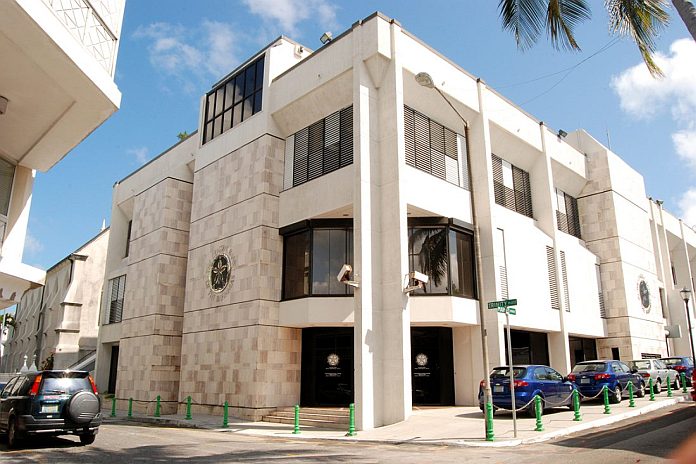By Caribbean News Global contributor
NASSAU, Bahamas — The Central Bank of The Bahamas (CBOB) and the ministry of finance have engaged in a borrowing strategy and the preservation of external reserves.
Last month, deputy prime minister Peter Turnquest said the economic ramifications of the COVID-19 pandemic on The Bahamas mean that difficult decisions will have to be made about new or improved programs. He advised that “we are looking for 20 percent. Can we make 20 percent? We don’t know. But we have put the challenge out to everybody to say just as we are expecting families to cut back because they are now in a challenging circumstance.” He further advised that “ The Bahamas has lost at least 70 percent of its revenue during the period since emergency lockdown measures were implemented to stop the spread of COVID-19.”
Government of The Bahamas request 20 percent budget-cuts at ministries
The government has already borrowed approximately $936.5 million since the start of the fiscal year to fund its budgetary obligations, according to the most recent fiscal snapshot.
“We do know that there will be a higher than normal amount of financing needed by the government, so the focus is really on ensuring that they borrow the appropriate amount in foreign currency versus local currency because there will be some borrowing that they can do in the local currency,” said governor John Rolle, But the balance has to be considerate on how those funds will be used to finance spending on imports, et cetera. So, there will be those kinds of discussions going on behind the scenes at the ministry of finance and I believe that we will get more insight into those as the government completes its budget preparations,” he said.
Foreign reserves currently approximate $2 billion and projected by the end of 2020, to be $1 billion. Protecting and increasing reserves is paramount to which, governor Rolle advised that the bank has taken four steps inclusive of the National Insurance Board (NIB) divesting several of its foreign investments, during the Central Bank’s quarterly economic briefing video conference yesterday.
“First, until a recovery is entrenched, resident access to foreign exchange for international capital market investments through Bahamas depository receipts and the Investment Currency Market has been suspended. That is, Bahamians are still urged to maintain their investment behavior and to take advantage of local opportunities until external access is restored.
“Second, the Central Bank has suspended approval of dividend payments for commercial banks. This has the dual effect of keeping buffers in place for an expected increase in credit losses and halting remittances abroad.
“Third, commercial banks have been given a more relaxed margin within which to sell foreign exchange to the public, before they are able to draw on the Central Bank’s foreign reserves to make sales to the public.
“Fourth, in keeping with the principle of viewing the National Insurance Board’s foreign investments as an extended support for the foreign reserves, the Central Bank has requested the NIB to liquidate some of its external investments and bring the proceeds back onshore.”
Collectively, governor Rolle said, “ the four sets of measures that I’ve mentioned, we’re looking in excess of $300 million in buffers provided for foreign exchange.”
The economic crisis associated with COVID-19 pandemic previously described by deputy prime minister Turnquest further illustrates that “find savings in their budgets”; and to help navigate fiscal goals with a fiscal deficit, which currently stands at $251.5 million.






